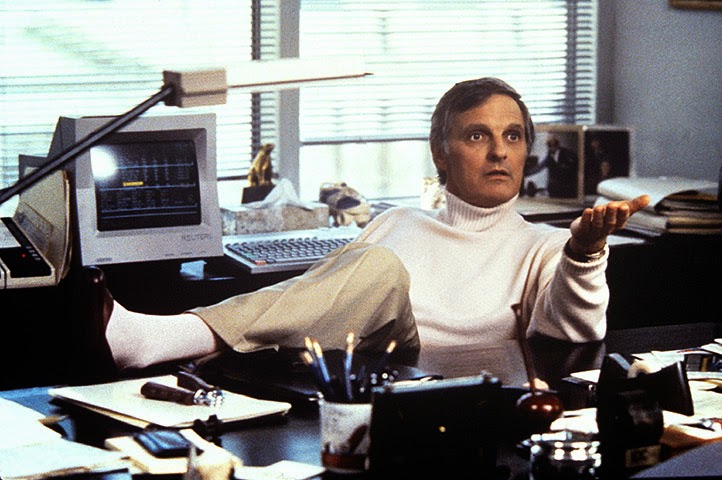I am watching reruns of M*A*S*H right now as I reflect on seeing the one and only Alan Alda in person at UVM’s Davis Center. I love watching M*A*S*H, as I feel it has held up really well over time and is a perfect mix of funny and tragic. The character Hawkeye Pierce, played by Alda, stands out even though the other cast members are excellent.
Alan Alda was also brilliant in Woody Allen movies, like Crimes and Misdemeanors (“If it bends, it’s funny. If it breaks, it’s not funny.”) Then I began seeing him getting involved in science with Scientific American and other shows that ran on PBS channels. Although today was a snow day and the roads were pretty bad, I and the intrepid Nina Madore weren’t going to miss the opportunity to see him live at UVM. I figured nobody would be there, but the giant Silver Maple Ballroom was packed.

I expected Alan to talk about specific science concepts, but, instead, he talked about being an effective communicator. He got rid of the podium used by those who introduced him in order to be more accessible to the audience. Actively demonstrating the theme of his talk, Alan looked carefully out at the faces in the audience and spoke in a warm, conversational manner without reading any notes. He shared the alarming statistic that 95% of Americans are not considered “science literate”. Then he went on to make the case for scientists learning to be better at relating to laypeople and working to make their research accessible.
Alan shared several ideas that scientists can use to think about improving communication. He talked about using emotion to help lodge ideas in the minds of the audience and using suspense and drama as a hook. At one point, a courageous audience member took the stage to demonstrate by walking across the stage with a very full glass of water. Another audience member was enlisted to demonstrate “the curse of knowledge” by tapping out a song. The curse of knowledge is what happens when you know something so well that you forget what it is like not to know it. In order to be a good communicator/teacher, one must break the curse and use empathy to understand the audience.
Alan’s talk was excellent. I wish more colleagues had been able to attend and that we could participate in some of the workshops he was going to be leading at UVM. His foundation, The Alan Alda Center for Communicating Science has a website worth visiting. UVM is going to begin a similar program and partner with him and his colleagues. In the meantime, elementary and middle school teachers should take a look at The Flame Challenge. Teachers of fifth and sixth graders can register here to let their students be the judges of a contest to see which scientist can best explain the answer to a science question. This year’s question is “What is sleep?”.
Alan has important messages for teachers and scientists and really anyone with a heartbeat. It’s worth visiting his website, reading more, and watching videos. Alan, thank you for coming to Vermont. I look forward to seeing UVM’s efforts in this area.

